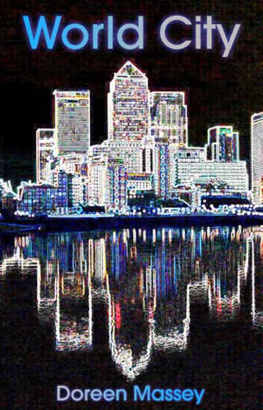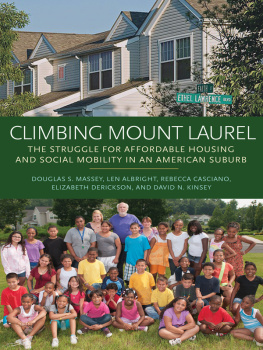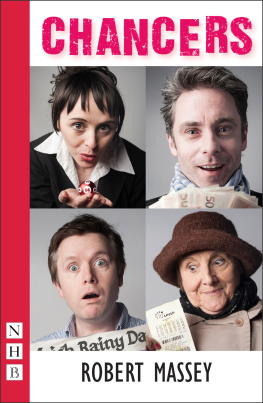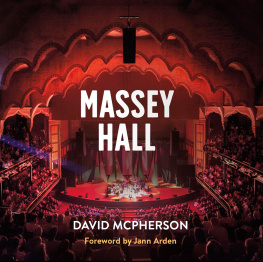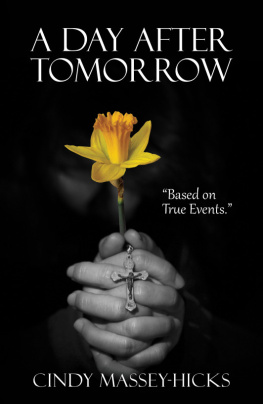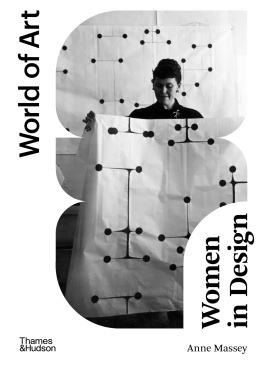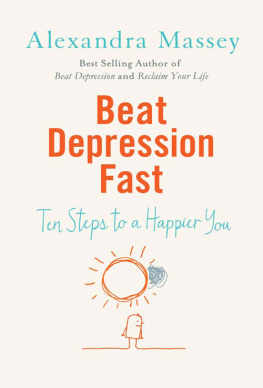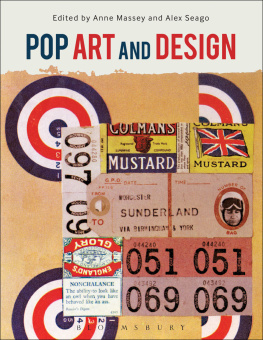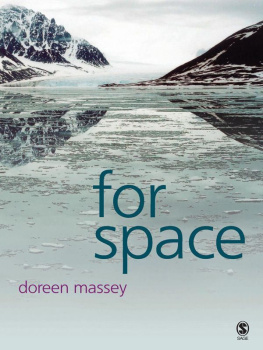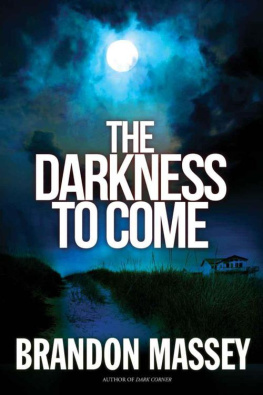Massey - World City
Here you can read online Massey - World City full text of the book (entire story) in english for free. Download pdf and epub, get meaning, cover and reviews about this ebook. City: New York;NY, year: 2013, publisher: Polity Press;John Wiley & Sons, genre: Politics. Description of the work, (preface) as well as reviews are available. Best literature library LitArk.com created for fans of good reading and offers a wide selection of genres:
Romance novel
Science fiction
Adventure
Detective
Science
History
Home and family
Prose
Art
Politics
Computer
Non-fiction
Religion
Business
Children
Humor
Choose a favorite category and find really read worthwhile books. Enjoy immersion in the world of imagination, feel the emotions of the characters or learn something new for yourself, make an fascinating discovery.
World City: summary, description and annotation
We offer to read an annotation, description, summary or preface (depends on what the author of the book "World City" wrote himself). If you haven't found the necessary information about the book — write in the comments, we will try to find it.
Massey: author's other books
Who wrote World City? Find out the surname, the name of the author of the book and a list of all author's works by series.
World City — read online for free the complete book (whole text) full work
Below is the text of the book, divided by pages. System saving the place of the last page read, allows you to conveniently read the book "World City" online for free, without having to search again every time where you left off. Put a bookmark, and you can go to the page where you finished reading at any time.
Font size:
Interval:
Bookmark:
WORLD CITY
WORLD CITY
DOREEN MASSEY
polity
Copyright Doreen Massey 2007
The right of Doreen Massey to be identied as Author of this Work has been asserted in accordance with the UK Copyright, Designs and Patents Act 1988.
First published in 2007 by Polity Press
Polity Press
65 Bridge Street
Cambridge CB2 1UR, UK
Polity Press
350 Main Street
Malden, MA 02148, USA
All rights reserved. Except for the quotation of short passages for the purpose of criticism and review, no part of this publication may be reproduced, stored in a retrieval system, or transmitted, in any form or by any means, electronic, mechanical, photocopying, recording or otherwise, without the prior permission of the publisher.
ISBN-13: 978-0-7456-5482-9
A catalogue record for this book is available from the British Library.
Typeset in 10.75 on 14 pt in Adobe Sabon by Servis Filmsetting Ltd, Manchester Printed and bound by Replika Press PVT Ltd, Kundli, India
The publisher has used its best endeavours to ensure that the URLs for external websites referred to in this book are correct and active at the time of going to press. However, the publisher has no responsibility for the websites and can make no guarantee that a site will remain live or that the content is or will remain appropriate.
Every effort has been made to trace all copyright holders, but if any have been inadvertently overlooked the publisher will be pleased to include any necessary credits in any subsequent reprint or edition.
For further information on Polity, visit our website: www.polity.co.uk
CONTENTS
ACKNOWLEDGEMENTS
The arguments here have beneted from conversations, debates and political engagements with many people over many years. My efforts to pull them into some kind of shape for this book have also been greatly aided by others. Ellie Jupp provided early research assistance, organising my heaps of cuttings, hunting down documents, getting hold of statistics, and providing comments. Her efciency set me on my way. A number of people read all or part of the manuscript, at various stages, and/or provided invaluable comments and clarications thank you to Allan Cochrane, Jane Wills, Ray Hudson, Adam Tickell, Ken Livingstone, Mick Dunford and Ian Gordon. Other friends working in and on London, academically and politically, have been a source of ideas and information both over the years and in the immediate preparation of this book. Way back in the 1980s there was the Ariel Road Group (Maureen Mackintosh, Hilary Wainwright, Michael Ward, Vella Pillay, Ken Livingstone, Robin Murray and Michael Rustin) that met in my at once a month after the demise of the GLC to try to keep the ideas owing and to begin to take them further into new times. Later, long discussions with Ash Amin and Nigel Thrift (which resulted in joint writing of our own) began the development of some of the ideas in Part II. I have learned much too from friends in more recent groupings, especially the London and European Social Forums.
Neeru Thakrar helped me with the initial stages of the physical preparation of the book. Throughout the latter part of writing, the help of Angela Daniels has been utterly invaluable producing the typescript, chasing up queries, and being a constant source of support. It has been great working together. Finally, Caroline Richmond helped me through copy-editing with precision and warmth, and Emma Hutchinson at Polity, too, beautifully combined friendliness and efciency. My thanks to all.
I am grateful to Jonathan Freedland and The Guardian for permission to reprint a substantial part of his article It may be beyond pass but well have to do something about the rich (23 November 2005; copyright Guardian News & Media Ltd 2005); to The Guardian for permission to quote from their leader Unbalanced Britain of 6 February 2003 (copyright Guardian News & Media Ltd 2003) and Larry Elliotts The United Kingdom of London (5 July 2004; copyright Guardian News & Media Ltd 2004); to The Observer for permission to quote from Nick Cohens Without prejudice (22 February 2004; copyright Guardian News & Media Ltd 2004) and to the Evening Standard for permission to quote from C. Freemans Mayors funding plea will divide Britain (26 June 2001). Jane Wills granted permission for me to use the information on the London Living Wage campaign shown in table 6.1, the Carbon Web illustration (gure 10.1) is courtesy of PLATFORM, and Ken Livingstone granted permission to quote from the press releases of 7 and 8 July 2005.
PREFACE
AFTER THE CRASH
This book was rst published in July 2007. Its aim was to point to the dangers of the dominance of the nance sector and its surrounding constellation of activities, in London, in the UK, and internationally. It was on the basis of nance that London reinvented itself from the 1980s on. It was around this sector that emerged a remoulded social stratum of the super-rich. It was on the basis of the nancial sector that the British economy was levered out of its long decline. And it was around this economic basis, too, that a new social settlement, commonly called neoliberal, was built and became hegemonic, its tenets embedding themselves deeply into popular common sense. Wider still, it was on the basis of the nancial sector that London asserted a new imperial role. It was all so self-assured. It was a brave new world. This is the world that is scrutinised in this book.
That world has now imploded, and one of the central implications of the arguments here is that we must not go back to business as usual.
Cities (and especially those called world cities) were central to this social settlement; in their glitz, their gentrication, and their acute inequality, they are home base to a new global elite London perhaps above all. As this book argues, London, or more precisely its nancial constellation, was at the heart of the establishment of neoliberalism as hegemonic. Its fortunes were built on deregulation, privatisation and marketisation, and it was these forces that spread through the country and around the world.
After the crash this argument can be extended. For if London was at the centre of this kind of society in its pomp, then it is also at the crux of its crisis. It is often said that this crisis is global, or that it was made in the USA. Well, it was certainly triggered in the USA, through the collapse of the sub-prime markets, but an immediate trigger is not the same as underlying causal conditions. Likewise, the crisis is certainly global, in that it had effects around the world. But, as this book argues, globalisation is made in places. The global is grounded. And one of the key localities where nancial globalisation was invented and orchestrated was London.
One question that arises now is: Is this just a banking crisis or could it precipitate a wider shift in social forces? Could it herald the beginning of the crumbling of the social settlement that has characterised the last thirty years?
The 1980s, the decade when this social settlement was nally established, was a period of social contest over Thatcherite cuts, over the closure of the mines and the decimation of manufacturing, over the government of London and other rebellious local authorities. That is how shifts between social settlements happen. They are moments when the future seems open.
Are we now potentially at another such moment? Is the dominance of nance now less assured? Could its crisis lead, as on occasions it has promised to do, to a wider questioning: of the rule of untramelled market forces, of growing inequality, and of a dominant culture of greed and self-interest? These are questions that will not be settled quickly.
The economic basis for the neoliberal social settlement was laid down under the Thatcher government, through the accelerated decline of mining and manufacturing and the rise to dominance of the City. New Labour accepted this inheritance, and used the taxes owing from nance into the exchequer to fund its social-democratic programme through a public sector itself culturally remoulded to reect the ideological tenets of the market. Thus was the economic settlement embedded in society more widely as an unquestioned common sense.
Next pageFont size:
Interval:
Bookmark:
Similar books «World City»
Look at similar books to World City. We have selected literature similar in name and meaning in the hope of providing readers with more options to find new, interesting, not yet read works.
Discussion, reviews of the book World City and just readers' own opinions. Leave your comments, write what you think about the work, its meaning or the main characters. Specify what exactly you liked and what you didn't like, and why you think so.

